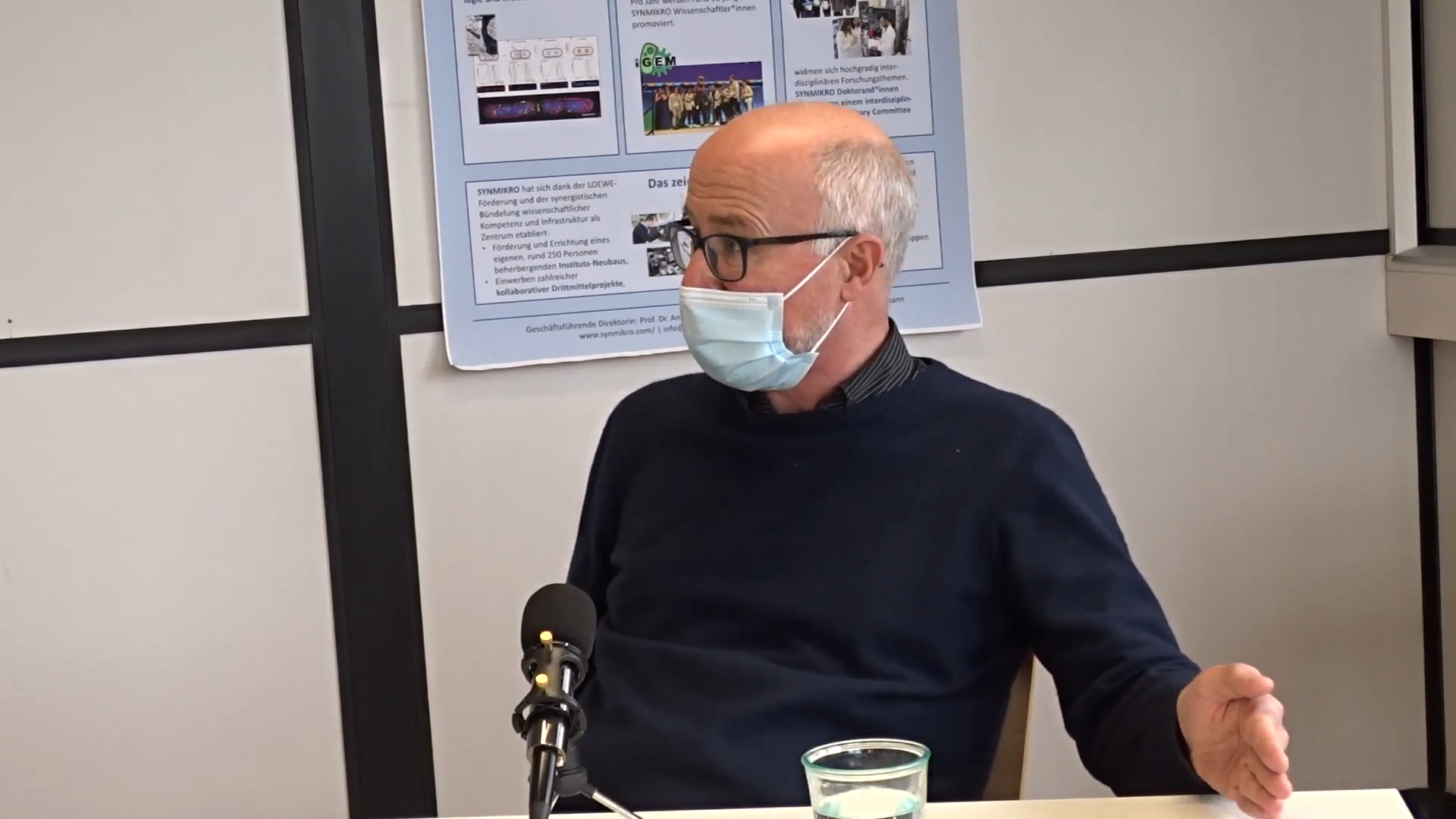ZKBS
With the beginning of our project, we as a team set the goal to revolutionize the process of synthetic biology research in plants. In order to accomplish this, it is necessary to understand the problems of using GMO crops outside of the laboratory.
The German Government seeks answers to such questions from organisations like the Central Commission for Biological Safety (ZKBS), which we thus contacted as one of our first sources. We organised a personal interview with the Chief Operating Officer of the Center for Synthetic Microbiology here in Marburg and Deputy Member for the Research Supporting Organizations at ZKBS, Dr. Jan-Wolfhard Kellmann.
Dr. Kellmann has served for almost 10 years at ZKBS, a volunteer panel of experts as well as representatives of the public. Since 1978, the commission has been advising those responsible in politics and administration by providing expert opinions, thus contributing to safety in the field of genetic engineering.

The situation of green genetic engineering in Germany, as in many parts of the EU, is still restrictive. This is in stark contrast to other regions of the world, such as the USA. The difference already starts with the social approach to the topic of green genetic engineering.
Dr. Kellmann described that in Germany, GMOs are, in general parlance, "not safe" and proof of safety must be provided, while in the USA, conversely, the safety of GMOs is more likely to be assumed and safety issues have to be proven afterwards. This is reflected not only in legislation, but especially in the public's perspective. In the interview, it was important for us to understand the background in more detail, also to be able to align future Human Practice projects more effectively.

"Finally, it is a discussion how a society and socio-economic parameters rule a given society." - Dr. Jan-Wolfhard Kellmann
Already in the 1970s, a crisis of agriculture began in Germany. Farmers produced in abundance and the prices for the yield collapsed so low that it came to existential hardship for many. To counteract this, more and more pesticides were used to increase yields, but this ended up having severe ecological consequences. According to Dr. Kellmann, a deep-rooted aversion to all types of pesticides, which today are per se also linked to the usage of GMOs, stems from this period.
When asked whether chloroplasts could find their way onto German fields as a chassis, Dr. Kellmann stressed to particulary view this from two angles:

If the safety of a transgenic plant was to be evaluated by the ZKBS, special attention would be paid to unintentional spread via pollen. Here, containment by chloroplasts would likely have a positive impact and meet the criteria for safety issues.
However, past experience shows that approval by the ZKBS does not have to equate to any kind of practicability. More than a decade ago, scientists were conducting research on GMOs by field trials in Germany. They, too, had approved methods to stop the spread of pollen, from netting over the fields to manually cutting off all flower-bud on the plants. But after groups of environmental activists kept wantonly attacking and destroying the fields, the trials were stopped - not only due to lacking of relevant data to interpret the outcome of a given field release experiment. Thus, not a single application for field trials has been submitted to the ZKBS since 2010.
Given our concern about the extent to which chloroplasts might now make a difference, Dr. Kellmann concluded,

"This is a question you should rather bring to the politicians than to the scientists."
We followed this advice and faithfully implemented it in our Human Practice work. Inspired by Dr. Kellmann's suggestions and to understand the hurdles for green genetic engineering, we contacted the "EFSA", the Hessian Ministry for the Environment, Climate Protection, Agriculture and Consumer Protection, the mayor of Marburg and the youth parliament KiJuPa.
